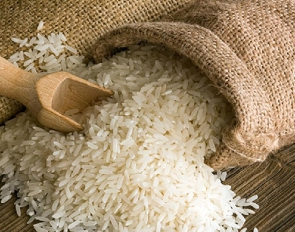The Ghana Commodity Exchange last week Monday added locally-produced rice to the number of commodities traded on its electronic trading platform following the approval by the Security and Exchange Commission.
The move is expected to boost local rice production and consumption as government works to put a moratorium on rice importation by 2022.
Rice has become the most consumed food staple in the country after maize. The country’s annual rice import bill, which is about 50 percent of rice consumed, currently stands at about US$1 billion, mainly to complement the consumption gap left by domestic production.
GCX has so far listed five commodities namely: maize, soya bean, sorghum and sesame contracts.
It is estimated that about 1.2 million metric tonnes of rice would be produced in the 2020/21 harvest year. However, just about 750,000 metric tonnes were produce during 2019 crop season.
This paper shares in the view of the President of the Ghana Rice lnterprofessional Body (GRIB), Nana Adjei Ayeh II who believes the of launch rice trading through the Exchange will be of immense value to the Ghanaian rice farmers.
Indeed, the addition of rice to the list of contracts traded on the GCX would increase marketing opportunities for rice farmers as well as address post-harvest loss issues and their lack of financing, which are key industry concerns.
It is also expected that the GCX Warehouse Receipt Financing Scheme will benefit rice farmers who can leverage their produce to obtain capital from banks at reasonable rates which can then be reinvested into their agribusiness ventures.
This paper would like to commend the management of the Ghana Commodity Exchange for the work done in setting up the exchange in the first place.
Indeed, the development of the agricultural value would not be complete without the payment of fair price to farmers for their produce – one of the problems to be tackled by the exchange.
Business News of Monday, 21 December 2020
Source: thebusiness24online.net













